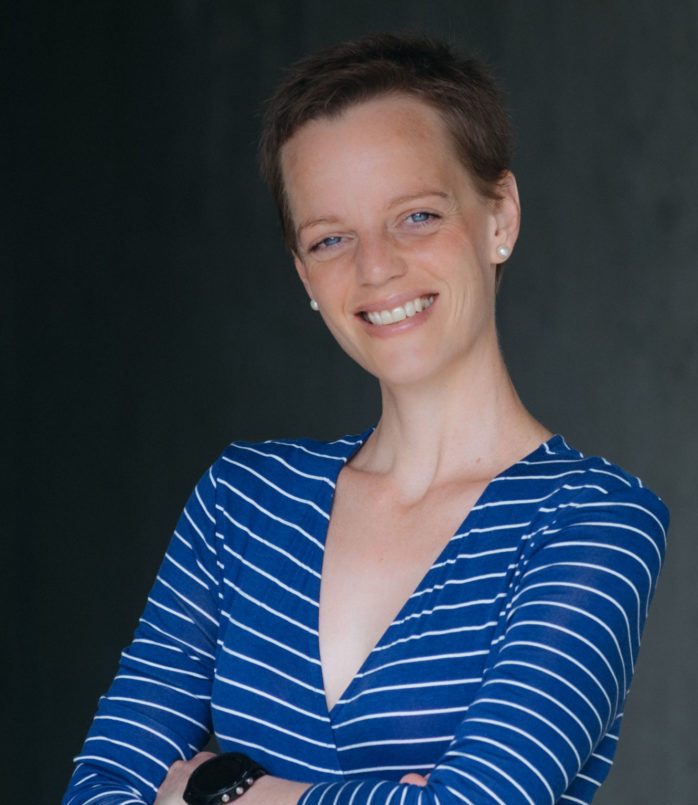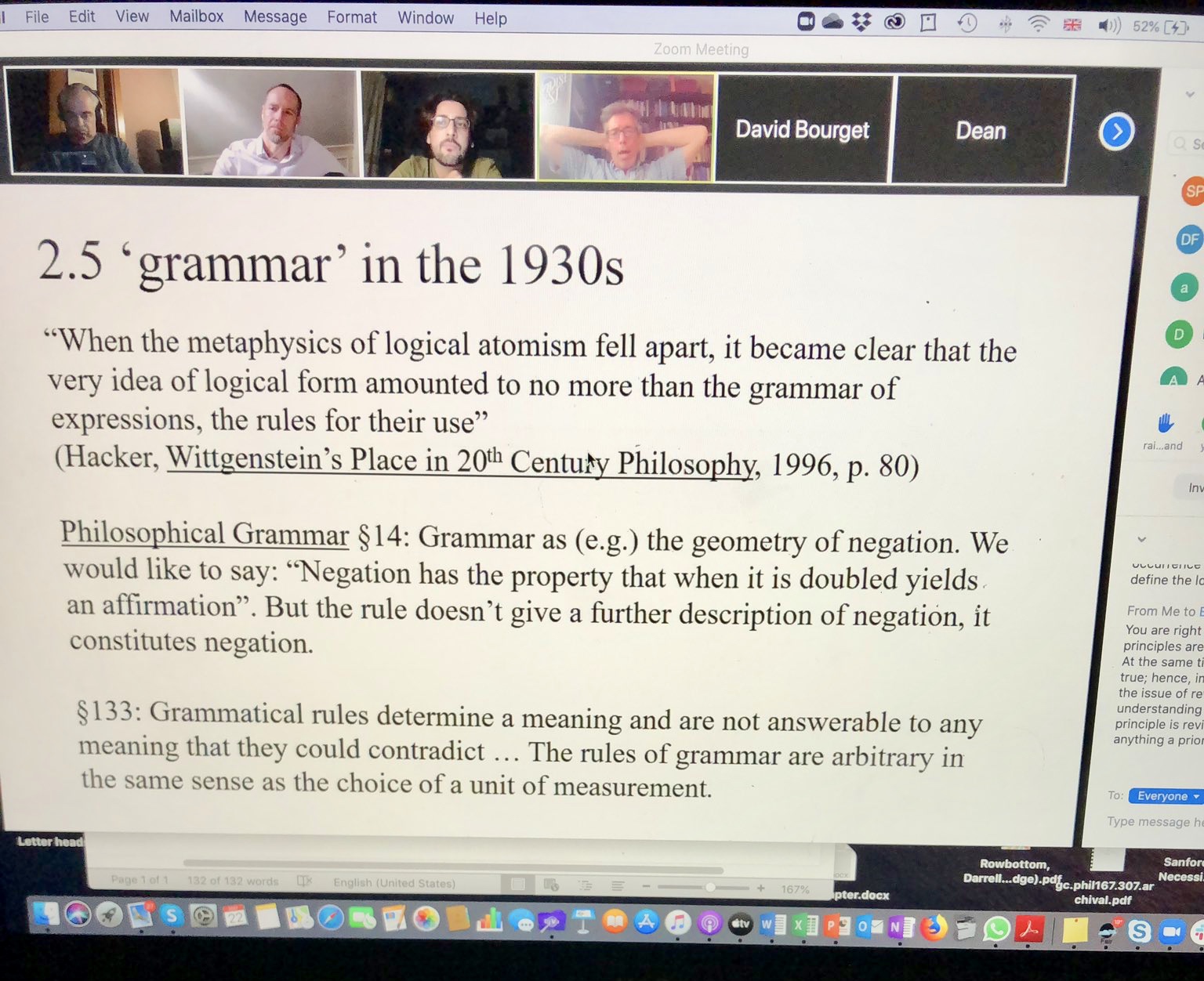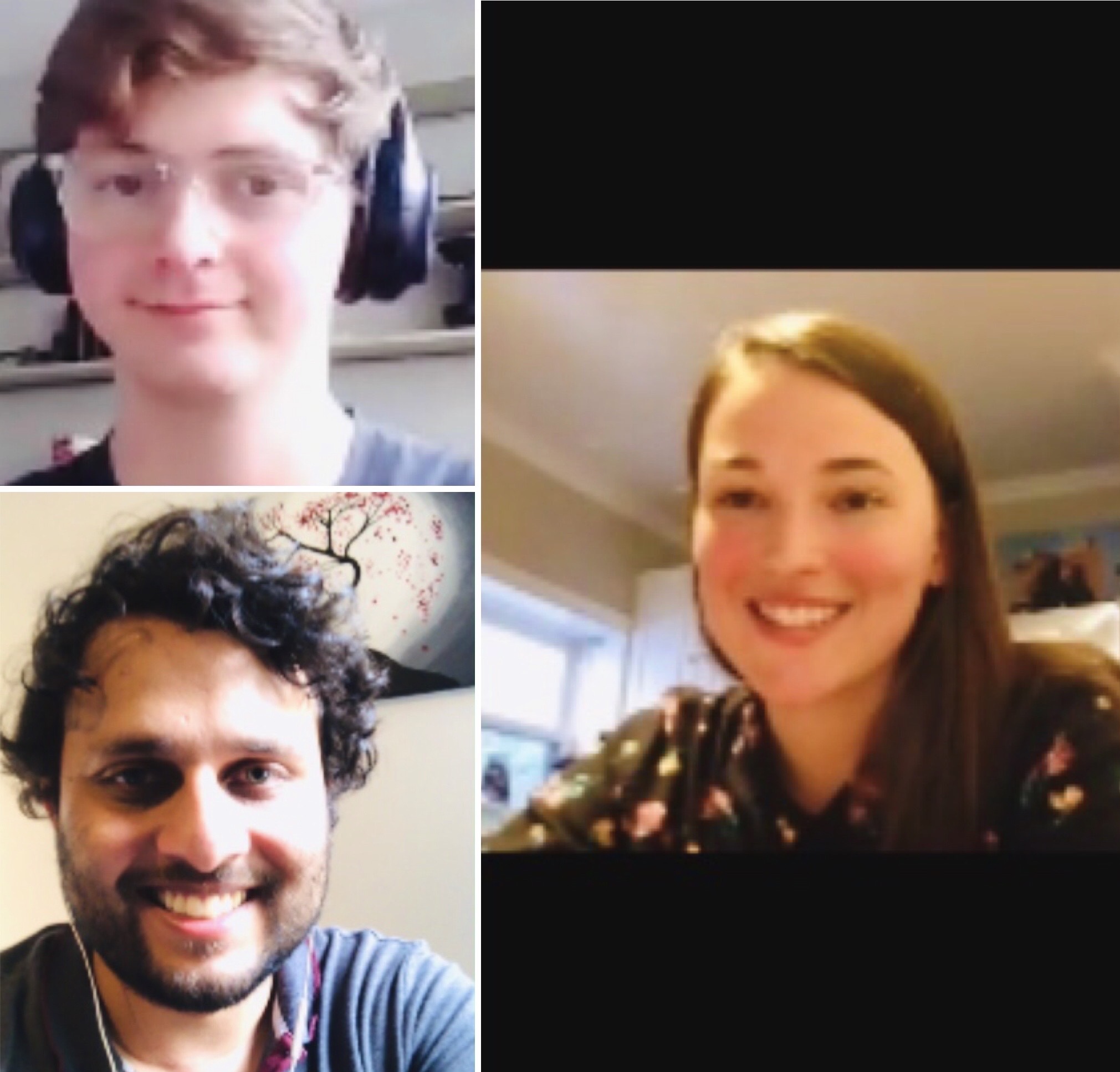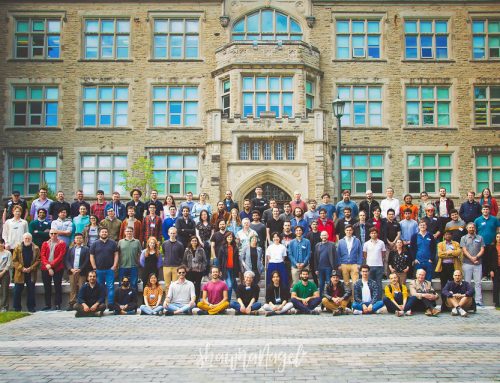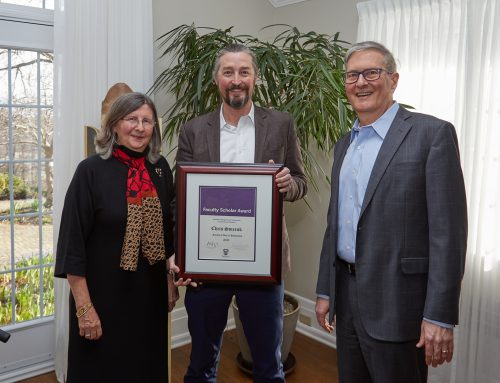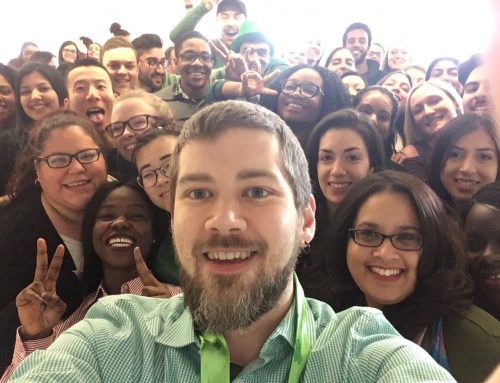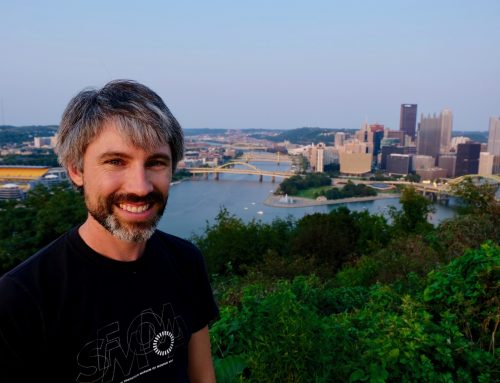This bi-monthly post begins with exciting news from a couple of our members. First off, we are excited to announce that Jess Du Toit received a Varnier Canada Graduate Scholarship, 2020-2023. The Vanier Scholarship recognizes students with outstanding academic achievement, research potential and leadership. In addition to this award, a few of our faculty members had recent success with obtaining new grants. Jackie Sullivan was awarded a SSHRC Insight Grant for her research project “The Philosophy of Neuroscience in Practice”. Rob Corless and Francesca Vidotto were recipients of Western Discovery Grants. These grants support ongoing programs of research with long-term goals. Our final piece of exciting news comes from Adam Koberisnki. Adam accepted a postdoctoral fellowship at the University of Waterloo working with Doreen Fraser, starting September 2020. Congratulations to Jess, Jackie, Rob, Francesca and Adam on these wonderful accomplishments!
The pre-read & virtual discussion for Arthur Sullivan‘s talk, “Wittgenstein, Carnap & Copernicus: adapting the a priori” took place on May 22 via Zoom. Arthur’s talk was the first virtual event we hosted since the university closed, and it proved to be successful. Thanks to everyone who attended, and to Arthur for adapting to this new format!
Finally, we’d like to thank Anthony Skelton and Eric Desjardins for their work this past year as director and associate director of the institute. Anthony will be deferring his sabbatical for a year and will take over a new role as Graduate Placement Officer for 2020-2021; Eric will remain our associate director for another year. Thank you Anthony and Eric for all the hard work you put in to make this year a successful one!
All other news from our members is listed below in alphabetical order.
Mike Anderson was a discussant in the “The Physics of Representation” webinar.
Reuven Brandt’s paper “Gamete Donation, the Responsibility Objection, and Procreative Responsibilities” was accepted in The Journal of Applied Philosophy. Reuven also
presented “Problematic Appeals to Biology in the Regulation of New Technologies” at the World Congress of Bioethics 2020 Conference.
Rob Coreless, Rob Moir, and David Jeffrey had a paper titled “An Unwinding Number Pair for Continuous Expressions of Integrals” published in the Journal of Symbolic Computation.
Michael Cuffaro gave four online lectures at the University of Urbino’s summer school in the philosophy of physics. The lectures can all be viewed on the Filosofia Urbino YouTube channel.
Cory Goldstein and The Ethics of Pragmatic Trials research team had a new publication come out in May–Cluster over individual randomization: are study design choices appropriately justified? Review of a random sample of trials.
BrainsCAN recently published Q&As with two affiliate faculty members: one with Adrian Owen on disorders of consciousness, and another with Stefan Köhler on amnesia and memory processing.
Philippos Papayannopoulos had an article on the foundations of scientific computing and the use of idealized models to represent mathematical (and physical) systems titled “Unrealistic models for realistic computations: How idealisations help represent mathematical structures and found scientific computing” appear in Synthese.
Anthony Skelton took part as a discussant in a webinar hosted by The HELP lab (Health Ethics, Law & Policy Lab). “Vaccination policy in a COVID-19 and post-COVID World” featuring Dr. Ubaka Ogbogu from the University of Alberta Faculty of Law.
Chris Smeenk and Adam Koberinski had a paper published at the end of April in Studies in History and Philosophy of Modern Physics, titled Q.E.D., QED. The paper is about precision testing in quantum electrodynamics, and they elucidate the complex ways in which it is used to confirm the standard model and guide future inquiry.
Maxwell Smith’s chapter on ‘Pandemic Disease, Public Health, and Ethics‘ co-authored with Ross Upshur was made open access in the Oxford Handbook of Public Health Ethics. Max also had a paper co-authored with Ross Upshur and Ezekiel Emanuel titled “Publication Ethics During Public Health Emergencies Such as the COVID-19 Pandemic” published.
Pictured above: Recipient of the Varnier Canada Graduate Scholarship Jess Du Toit; Screenshot of Arthur Sullivan’s webinar; Heather Stewart being interviewed by Yousuf Hasan & Gregory Robinson on the Gradcast podcast.

